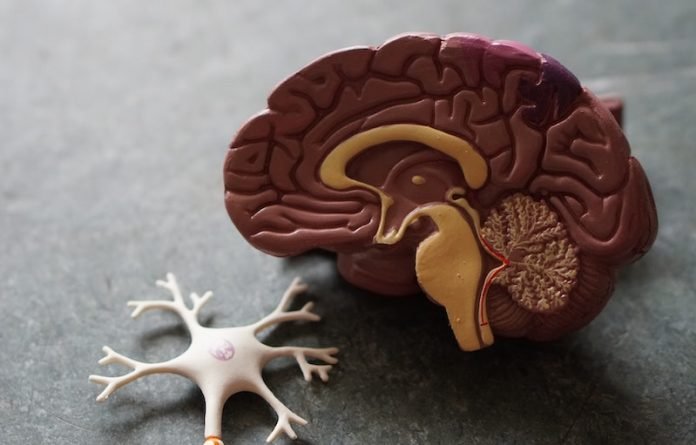
In a study from the University of Cincinnati and elsewhere, scientists suggest that Alzheimer’s disease is caused by a decline in levels of a specific protein.
The research is focused on a protein called amyloid-beta. The protein normally carries out its functions in the brain in a form that is soluble, meaning dissolvable in water, but it sometimes hardens into clumps, known as amyloid plaques.
Previous research from the team found that regardless of the buildup of plaques in the brain, people with high levels of soluble amyloid-beta were cognitively normal, while those with low levels of the protein were more likely to have cognitive impairment.
In the current study, the team analyzed the levels of amyloid-beta in a subset of patients with mutations that predict an overexpression of amyloid plaques in the brain, which is thought to make them more likely to develop Alzheimer’s disease.
Even in this group of patients thought to have the highest risk of Alzheimer’s disease, the researchers found similar results as the study of the general population.
The research found that with a baseline level of soluble amyloid-beta in the brain above 270 picograms per milliliter, people can remain cognitively normal regardless of the amount of amyloid plaques in their brains.
The team said the research is moving forward to study if increasing the levels of soluble amyloid-beta in the brain is a beneficial therapy for patients with Alzheimer’s.
It will be important to ensure that the elevated levels of the protein introduced into the brain do not then turn into amyloid plaques, since the soluble version of the protein is needed for normal function to make an impact in the brain.
On a larger scale, the researchers said they believe a similar hypothesis of what causes neurodegeneration can be applied to other diseases including Parkinson’s and Creutzfeldt-Jakob disease, with research ongoing in these areas as well.
For example, in Parkinson’s disease, a normally soluble protein in the brain called alpha-synuclein can harden into a deposit called a Lewy body.
The researchers hypothesize that Parkinson’s is not caused by Lewy bodies aggregating in the brain, but rather by a decrease in levels of normal, soluble alpha-synuclein.
Rescue medicine looks like the current work, studying if boosting levels of key proteins like amyloid-beta leads to better outcomes.
If you care about Alzheimer’s, please read studies about the root cause of cognitive decline in Alzheimer’s, and 5 steps to protect against Alzheimer’s and Dementia.
For more information about brain health, please see recent studies that herb rosemary could help fight COVID-19 and Alzheimer’s disease, and results showing this stuff in mouth may help prevent Alzheimer’s.
The study was conducted by Alberto Espay et al and published in the Journal of Alzheimer’s Disease.
Copyright © 2022 Knowridge Science Report. All rights reserved.



